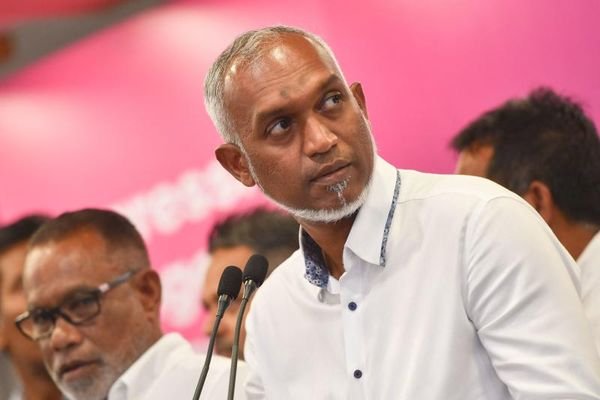Maldives President Mohamed Muizzu’s recent visit to China, aimed at strengthening bilateral ties, has stirred attention, especially in the context of a diplomatic row with India. Notably described as “pro-China,” Muizzu departed from the tradition of his predecessors by choosing to visit China and skipping a visit to India. This decision follows derogatory remarks made by three Maldivian ministers on Indian Prime Minister Narendra Modi’s Lakshadweep visit.
China’s state media, Global Times, highlighted Muizzu’s visit in an editorial on Monday, acknowledging the diplomatic tension between India and the Maldives. The editorial called for an “open-minded” approach to South Asian issues, emphasizing China’s status as the Maldives’ largest source of tourists since 2010.
As a response to the derogatory remarks against PM Modi, Indians initiated a boycott of the Maldives. The Global Times editorial underscored China’s longstanding role as a significant source of tourists for the Maldives and urged for a nuanced perspective on South Asian matters.
The strained ties between India and the Maldives intensified when Muizzu, considered less India-friendly, defeated his predecessor Ibrahim Mohamed Solih in the presidential run-off in September. The Global Times editorial emphasized that China views the Maldives as an equal partner and respects its sovereignty. It highlighted that China has never pressured the Maldives to reject India or viewed cooperation between the Maldives and India as unfriendly or a threat.
The editorial noted China’s willingness to engage in trilateral cooperation between China, India, and the Maldives, stating, “New Delhi should stay more open-minded, as China’s cooperation with South Asian countries is not a zero-sum game.”
Muizzu’s choice to visit China first, breaking from the tradition of his predecessors who typically visited India first due to bilateral ties and proximity, drew attention. His initial foreign visit was to Turkey, followed by the UAE, where he met Prime Minister Modi on the sidelines of the United Nations Framework Convention on Climate Change (COP28) on December 1. Discussions revolved around the progress of wide-ranging bilateral ties.
Global Times noted, “Under normal circumstances, when a new leader comes to power, they arrange their visits based on the importance and urgency of the matters to be dealt with. President Muizzu broke tradition by visiting Turkey for his first official overseas visit instead of India.”
The Maldives holds strategic importance for India as a key maritime neighbor in the Indian Ocean Region (IOR). It plays a crucial role in India’s initiatives like ‘SAGAR’ (Security and Growth for All in the Region) and the ‘Neighbourhood First Policy’ of the Modi government. Its proximity to India, approximately 70 nautical miles from the island of Minicoy in Lakshadweep and 300 nautical miles from the mainland’s western coast, places it at the hub of commercial sea lanes in the Indian Ocean.
The evolving dynamics in the Indian Ocean region, along with the diplomatic moves by the Maldives, underscore the intricate relationships and strategic considerations at play. The Global Times editorial seeks to navigate the diplomatic landscape by emphasizing mutual respect, open-mindedness, and the potential for trilateral cooperation between China, India, and the Maldives. The situation remains fluid, and future developments will likely shape the regional geopolitical landscape.
